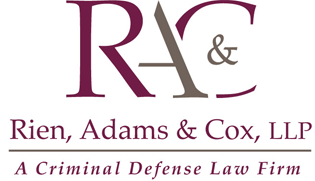Frequently Asked Questions
Do I need a lawyer for a misdemeanor assault charge?
The necessity of hiring a lawyer for a misdemeanor assault charge is significant. A qualified attorney can help navigate the legal complexities, protect your rights, and potentially reduce penalties or achieve a favorable outcome.
What are the benefits of hiring an assault attorney?
The benefits of hiring an assault attorney include expert legal representation, a thorough understanding of the law, and the ability to navigate the complexities of the criminal justice system, all of which can significantly improve the outcome of your case.
How do I find a good assault lawyer near me?
Finding a good assault lawyer near you involves researching local law firms, reading client reviews, and checking their experience in handling assault cases. Consider scheduling consultations to assess their expertise and compatibility with your needs.
How to choose the right assault attorney for my case?
Choosing the right assault attorney for your case involves considering their experience in handling similar cases, their reputation, and their approach to client communication. Schedule consultations to assess their understanding of your situation and legal strategy.
What is the assault attorneys approach to defense?
The assault attorneys' approach to defense focuses on thorough case analysis, strategic planning, and personalized representation. They aim to identify weaknesses in the prosecution's case and advocate for the best possible outcome for their clients.
What are the consequences of a felony assault conviction?
The consequences of a felony assault conviction include significant prison time, hefty fines, and a permanent criminal record, which can impact employment opportunities and civil rights. Additionally, it may lead to probation or mandatory counseling.
How to find an experienced assault attorney near me?
Finding an experienced assault attorney near you involves researching local law firms that specialize in criminal defense. Look for attorneys with a proven track record in handling assault cases and read client reviews to gauge their effectiveness.
What are the penalties for assault and battery charges?
The penalties for assault and battery charges can vary significantly based on the severity of the offense. Generally, they may include fines, probation, and imprisonment, with more severe cases potentially leading to felony charges and longer prison sentences.
What questions should I ask an assault attorney?
When consulting an assault attorney, key questions to ask include their experience with similar cases, their approach to defense strategies, potential outcomes, and their fees. This ensures you choose the right representation for your situation.
How much does an assault attorney cost?
The cost of hiring an assault attorney can vary significantly based on factors such as experience, location, and the complexity of the case. Typically, fees range from $150 to $500 per hour, with some attorneys offering flat rates for specific services.
What is the role of an assault lawyer in a criminal case?
The role of an assault lawyer in a criminal case is to provide legal representation, defend the accused against charges, evaluate evidence, negotiate plea deals, and advocate for the client's rights throughout the legal process.
Can an assault lawyer help reduce my sentence?
An assault lawyer can help reduce your sentence by leveraging their expertise to negotiate plea deals, present mitigating factors, and build a strong defense that may result in lesser charges or penalties.
How long does an assault case typically take with a lawyer?
The duration of an assault case with a lawyer can vary significantly, typically ranging from a few months to over a year, depending on factors like case complexity, court schedules, and negotiation outcomes.
Can an assault attorney help me win my case?
An assault attorney can significantly enhance your chances of winning your case. With their expertise in criminal defense, they can build a strong defense strategy, negotiate plea deals, and represent you effectively in court.
How do I find a reputable assault and battery lawyer?
Finding a reputable assault and battery lawyer involves researching local law firms, reading client reviews, and seeking referrals from trusted sources. Focus on attorneys with experience in violent crime cases and a strong track record of successful outcomes.
What should I expect during my consultation?
During your consultation, you can expect a thorough discussion of your case, where our attorneys will listen to your concerns, explain your legal options, and outline the next steps in your defense strategy.
How can an attorney strengthen my defense?
An attorney can strengthen your defense by leveraging their legal expertise, gathering crucial evidence, identifying weaknesses in the prosecution's case, and crafting a strategic defense tailored to your specific circumstances.
What evidence is crucial in assault cases?
The crucial evidence in assault cases includes eyewitness testimonies, physical evidence such as injuries or weapons, surveillance footage, and any recorded communications between the parties involved. This evidence plays a key role in establishing the facts of the case.
What are common defenses for assault charges?
Common defenses for assault charges include self-defense, defense of others, consent, and lack of intent. Each of these defenses can significantly impact the outcome of a case, depending on the circumstances surrounding the incident.
How does prior conviction affect my case?
A prior conviction can significantly impact your case by influencing sentencing, plea negotiations, and the perception of your character in court. It may lead to harsher penalties if convicted again, making legal representation crucial.
What is the process for appealing a conviction?
The process for appealing a conviction involves filing a notice of appeal, preparing the appellate brief, and presenting oral arguments before a higher court. It is essential to adhere to strict deadlines and legal standards throughout this process.
How can I prepare for my trial?
Preparing for your trial involves gathering evidence, reviewing case details with your attorney, and understanding courtroom procedures. Additionally, it’s crucial to practice your testimony and stay informed about the legal process to ensure you are fully prepared.
What are the typical outcomes of assault cases?
The typical outcomes of assault cases can include acquittal, reduced charges, plea deals, or convictions resulting in fines, probation, or imprisonment, depending on the circumstances and evidence presented.
What role does evidence play in my defense?
The role of evidence in your defense is crucial. It can establish your innocence, support your claims, and challenge the prosecution's case, ultimately influencing the outcome of your trial.
How can I support my attorney effectively?
Supporting your attorney effectively involves being open and honest about your case, providing all relevant information and documents, and maintaining clear communication throughout the legal process. Your active participation can significantly enhance your defense strategy.
What are the steps after an arrest?
The steps after an arrest include being booked, receiving a bail hearing, and potentially being arraigned. It's crucial to consult with an attorney to understand your rights and options during this process.
What should I do if charges are dropped?
If charges are dropped, you should consider obtaining a copy of the dismissal order and consult with your attorney about any potential next steps, including expungement options to clear your record.
How can I protect my rights during arrest?
Protecting your rights during an arrest involves remaining calm, clearly stating that you wish to remain silent, and requesting an attorney. Avoid resisting or arguing with law enforcement to prevent escalation.
What factors influence sentencing in assault cases?
The factors that influence sentencing in assault cases include the severity of the injury, the defendant's criminal history, the circumstances surrounding the incident, and whether a weapon was involved. Each case is evaluated individually by the court.





